Dialogue with the Dead
Julien Coupat
First published as a postface to the Italian edition of Gianni Carchia’s Orfismo e tragedia. Il mito trasfigurato (Quodlibet, 2019).
Other languages: Français, Español, Italiano
I’ll take the liberty here to say that freedom is always clandestine, that truth and justice are as well. And that they are only false semblances and agents of intimidation once they are set up in the public square.
—Pierre Klossowski, Le 14 juillet, #3
There are texts whose density makes all commentary excessive, whose elliptical character prevents any supplementary explicitation. Orphism and Tragedy is one of those. Impossible to write about; one has to write after, to write with, at something approaching the same speed.
What comes with Carcia, in 1979, is Benjamin and Michelstaedter, Adorno and Pareyson, but also the Tuaregs and Bordiga, the Quaderni Rossi and Potere Operaio, Camatte and Invariance, Fachinelli’s L’erba Voglio, Piero Flecchia’s journal An.Archos, and also Domenico Ferla, Bordiguist and Manichaean poet. Armored democracy is closing its jaws on a generation of emarginati. Politics, in which all hopes of salvation had been placed, actually formed part of the damnation. From the depths of this blockage, Carcia decides to take everything up again at a somewhat higher level. He places himself at the level of civilization, draws out lines of flight for the present, for the future, for always. He explores other beginnings. “In the ideal of the recommencement there is something that precedes the commencement itself, that takes it up in order to deepen it and push it back in time.” (Deleuze) During the same years, Foucault and Carchia return to Antiquity, with varying fortunes. This wasn’t by chance. Although starting from Heidegger, but not having gone back far enough, Foucault will conclude in his last interview, in the summer of 1984: “The whole of Antiquity appears to me to have been a ‘profound error'." Carchia takes the risk of deciphering a blank space by going back all the way to the bios orphicos. He sheds light on the “profound error” by reference to this possible fork in the road, offering a direction that wasn’t taken. The West, stable in its decline, constant in its apocalypse, is not a uniform surface. It is a surface riddled with holes, strewn with exposed depths, despite all the efforts to cover them over. These holes are blocs of primitivity, of vital possibilities, “nuclei of virulent affect” as Henri Lefebvre put it. They sometimes bear names — Meister Eckhart no less than Empedocles, Abaris no less than Artaud; these proper names are then understood as events. Orpheus is one of them, one of the first in the order of time. A superficial political understanding will have no trouble seeing in Orphism and Tragedy a desertion in the face of the enemy, a flight from the political tragedy being played out in 1979 — a depoliticization. It must be said that this particular understanding already failed to grasp, in the fifth century before Jesus Christ, that what was deeply political in Orphism consisted precisely in the fact of rejecting everything having to do with the polis. To be fair, superficiality is also a measure of protection: by opening itself up to the divine powers a soul risks being submerged as if by a flood overwhelming its senses and drowning them. One to whom more things happen than can be digested, may never recover from it, as if struck by Apollo. All the more so in a time when “soullessness was the price to be paid for entering into the historical temporality of progress.” (Gianni Carchia, Per una estetica dell’invecchiato in Dario Lanzardo, Dame e cavalieri nel Baloon di Torino)
“The fathers have eaten sour grapes, and the children’s teeth are set on edge”. This is how things have gone at least since Jeremiah. The mendacity of civilization consists in covering its multiple decisions in silence, then inventing a logical history for itself. This is how, from generation to generation, and from concealment to concealment, the wisdom of this world has become perfectly insane. Athens, for example, is the name of a catastrophe. One would need to have struggled daily, like Jean-Pierre Vernant, with Stalinist “oriental despotism” to revere the Greek polis as an exemplary historical invention. Nicole Lauraux is certainly right to see an instance of depoliticization in the city-state, as a self-celebrating entity, staving off the stasis that may resume at any moment. And attempting to unmask the perpetuation of oligarchy beneath the democratic disguise always constitutes a gratifying exercise. But it’s not going back far enough. Democracy is the appropriate — i.e., the most effective — form of organization for a collectivity of predators.1 The meson is the place for sharing out only because it’s the place where the spoils of pillage are deposited, under the jealous eye of everyone. Prior to being equality before the law, isonomy is equality in the distribution of plunder. The drawing of lots delegates to the gods a distribution that would end in a massacre if the humans were put in charge of it. In any case, whether for the apportionment of loot, tasks, or chunks of boiled beef after the sacrifice, drawing lots bears no relation to modern equality in the face of chance — Rancière notwithstanding. The democratic community has never ceased being a complicity in pillage and murder. “The first Greeks were all pirates,” concludes Montesquieu. And it’s not for nothing that the first truly egalitarian constitutions of modernity are pirate constitutions. “The whole history of democracy is perhaps that of a system of brigandage, of a form of piracy — from the beginning up to the present day” (Jean-Paul Curnier, La piraterie dans l’âme). The meson became the empty space of public speech simply because the booty had dematerialized. With the Delian League, citizenship becomes a profitable status. Man is a wolf for man ever since Aesop’s famous fable; and in the Arcadian tradition, it is Lycaon, the wolf man, who founds the first city, Lycosoura, “Wolf Mountain.” It was said that no one was better than him at equitably carving up the sacrificial flesh. Equality, then, as the meeting point of all the rapacities, and democracy as the mystification of this mechanism. Or to say that with Freud, “society rests on the part taken in the collective crime” (Totem and Taboo). There is a genealogy of morals that leads back directly to classical Athens, “the source of all police” according to Nicolas de La Mare.
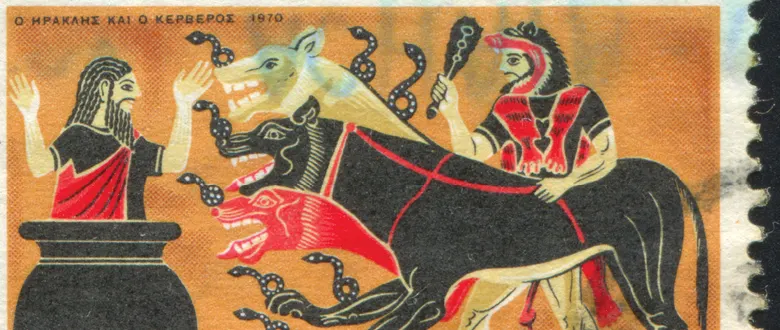
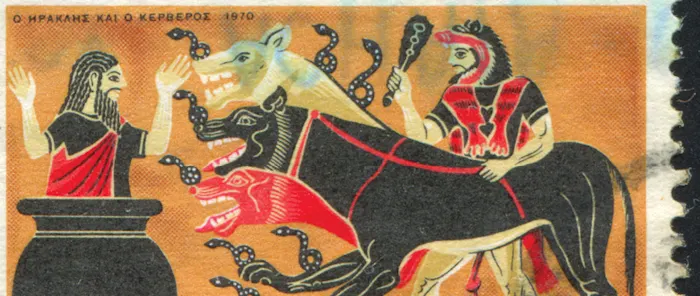
While Meuli may be correct in tracing the Greek sacrificial ritual “of the head and the long bones” back to the paleolithic hunt and in explaining it by the need to temper the emotion connected with spilled blood, there is a world between the killing of the mammoth or deer in the prehistoric hunt and the hypocritically calculated staging of the ox sacrifice in the Greek city-state — the masked and crossdressed men who slay the animal, the lamentations, the weapon used in the crime hidden under the barleycorn, the dolled-up animal that “consents” to its execution. Only here can one speak of a veritable “comedy of innocence” which the egalitarian pack offers itself. For the polis is a ship of which the citizens are the rowers. It is a purely human construction that drifts — the governmental metaphor of its need for steering is not fortuitous — in the midst of an environment that has become essentially alien, mute, hostile. Walter Burkert is convinced that “the tragodoi are originally a group of masked men who carry out the sacrifice of the springtime billy goat” (Sauvages origines). If tragedy consummates and at the same time suspends the comedy of innocence which is the life of the polis, this is because that life is not just the product of all the possible rapines and is based on the massacre of phalanges, or even entire enemy populations, and on the murder of heroes, of gods, and of nature. The thing is, it’s precisely the gods, the heroes, and nature that tragedy brings to the stage: it includes them in the life of the city in the form of their expulsion. Whatever one may think of Julian Jaynes’ thesis in The Origin of Consciousness in the Breakdown of the Bicameral Mind, between the humanity of the Illiad and that of the classical city-state, there is in fact a gulf — a gulf that is not the one separating a mythical-aristocratic humanity from a rationalist-democratic humanity, but rather the abyss between a full asubjective presence to the world, still having access to the invisible, ignorant of consciousness, a stranger to reflection, including moral reflection, and on the other hand an existence filtered by an analogous I, narrativizing its experience, flanked by an interiority authorizing simulation and dissimulation, an existence in which time is spatialized, where the voices are silent and where the seers become exceptions worthy of curiosity — “mystics.” This doesn’t in any way contradict Walter Otto’s thesis that, to the great displeasure of the Moderns, the gods of the Greeks are; it’s just that, as the centuries pass, they are less and less. They do survive in our day, barely — as relics. It’s that the great Pan has taken a long time to die, that the process of secularization and disenchantment of the world has continued for three thousand years, and that the rituals live on for a long time after the extinction of the gods. With tragedy, the new humanity, which will no longer know certainty, “works on its mental infrastructure in a fully public way. (…) Revivifying, regenerating, and developing the ethical foundation of politics, with its ‘credit of meaning’ with which the aspiration to understand has to be satisfied (…) tragedy provides a mental grounding for the political” (Christian Meier, De la tragédie grecque comme art politique). If the assembly organizes the conditions of speech, it’s in the silence of spectators that tragedy organizes the conditions of listening, and therefore of not hearing. The autonomy of the aesthetic form corresponds in fact to the autonomy of politics. It endows the new civilized humanity with a system of perception and socialized problematization, and which can only be that by remaining bound up with ambiguity, indecision, falsely supreme irony; culture offers sense to those who have lost their sensitivities. On the occasion of the Great Dyonisia, Athens can even offer its vassals who have come to deliver their tribute the blinding spectacle of its unfathomable, artistic, and provocative questionings. From the Ancient Greeks to today’s Americans, the West defines itself as a gesture: that of appropriating what one no longer manages to feel. Occidere: to kill, tear apart, annihilate — so many ways to appropriate what lives outside us. The extent to which the rapacity of civilized human beings stems from the emptiness that has been established within them is what still remains for us to evaluate.
The invention of money, of politics, of tragedy, of philosophical speculation, of a doggedly representative art, of morals as a sector of special inquiry, form a response — the Greek response — to this anthropological mutation, at the critical juncture that Jaynes calls “the birth of consciousness”. It is in this critical juncture that Orphism must be situated, as a minor path, as a poorly known bifurcation, whose very existence was long reduced to the status of rumor. It took the discovery in 1962 of the oldest Greek papyrus, the Dervini papyrus, having survived the fire in a tomb near Thessalonica, then multiple archeological finds of gold strips, vases, or graffitied bones for everyone to yield to the evidence of Orphism’s existence, and of its antiquity. As with all that is minor in a civilization, those who applied themselves to the study of Orphism had to free the importance of their object from the paucity of traces that were left, from the indirect character of the testimonies, from the uncertainties as to the dating of writings, from the mockery of the important people. Someone who, like Carchia, keeps a low profile, values his friends more than publicity, writes for those who are disposed to understand him and not in order to convince and to exist, knows that at any time the major figures are apt to cast doubt on his own existence and on the meaning of that existence — not without having plundered it beforehand of course. The history of the victors made no place for Orphism, and for a reason: Orphism is a code name for the destitution of an entire civilization at the very moment it was being established. Now that the catastrophe which this civilization is, is being evidenced in every domain, perhaps it is time to return to that forgotten bifurcation.
As for the Western gesture of appropriating that which one doesn’t manage to feel, the philosophical tradition began as early as Plato to apply it to its own mythical founders. All the significant concepts of ancient philosophy are secularized mystical notions. As Peter Kingsley is at pains to remind us, after so many others, it is understood that Pythagoras, Empedocles, and Parmenides were never “philosophers”, but mages, healers, shamans, “masters of truth.” Leaving their bodies in order to move in their minds in a cataleptic slumber, transporting beings into the company of the dead, crossing through death itself, controlling the elements, knowing “what is, what has been, and what will be” without having learned such things, are among their notable attributes. Mnemosyne isn’t the name of a human faculty, a knowledge of the past, but of access to a plane of the real situated outside of space and outside of time. But even among them, the figure of Orpheus, who sings and doesn’t make speeches, for whom “Gesang ist Dasein” and whose songs are felt even by stones, is an exception, and not only as a mythical figure. In spite of an often noted doctrinal and historical proximity between Orphism and Pythagoreanism, an essential difference separates them: it’s the fact that there is a Pythagorean politics. Pythagoras forms a brotherhood and a plan for reforming the city. Ditto for Empedocles, a public figure from Agrigento. Orpheus follows a different path, the path “so new in this sixth century, of the founder, the founder not of a city, but of a type of life. (…) So Pythagoras makes the choice of the ‘political’, a new ‘type of life’, taking shape inside the circle of the city and its agora. Whereas his contemporary Orpheus chooses a type of life outside of politics, and even one that refuses the city and rejects its value system. (…) From the sixth to the fourth century, the Orphics are marginals, wanderers, and above all ‘renunciants’, meaning that they chose to renounce the world, the world of the city dwellers. (…) Electing not to cause the blood of animal victims to flow is not just to refuse to eat meat, which might appear to be “vegetarianism” in the familiar sense, it is to place oneself intentionally outside the world of the city and apart from the citizens who, during the most ‘political’ festivals and functions, participate in public sacrifices, financed by the city when the assembly of ‘sacred matters’, as it was called, sets the price of the victims and the sacrificial calendar of the city’s festivals. Half of the ‘laws’ attributed to Solon, it should be said, have the look of a huge sacrificial calendar of the city’s festivals.” (Marcel Détienne, Les dieux d’Orphée) Refusing to take part in city life’s founding murder, in its comedy of innocence and thus in the falseness of social life, holding that real life is elsewhere — Rimbaud writes Orphically, in a recently discovered letter from 1874: “moreover, the matter having been laid out, I will be free to proceed mystically, or coarsely, or learnedly” — in any case, not founding another social reality, another human collective detached from the ties that connect me with the world, with myself, the impalpable, my friends, or my Eurydice, detached therefore from singularities. Such is the Orphic anti-politics, or rather the Orphic destitution of politics. It is this indifference to social norms that made Orphism so popular, and so undecipherable. In one of his latest texts, Marshall Sahlins settles accounts with the absurd idea that sees so-called “primitive” tribes as models of democracy since hierarchical relations are absent from them. Such an illusion comes from the way anthropologists tend to observe the “primitive” social world by abstracting it from the ensemble of metahuman presences, of natural or magical powers, of deities — in short: from the densely peopled cosmos — an ensemble from which it is inseparable and which maintains with the humans at its center, so to speak, relations that are not exactly democratic. “If there is indeed no boundary between the cosmos and the socius, then it’s not exactly what some would call a ‘simple society’, let alone an egalitarian one.” (“The Original Political Society”, in On Kings) Orphism responds to what the West consists in not seeing as a problem. “The Orphic catharsis may not be seeking to resolve a punctual crisis, but the existential crisis; not aiming to purify from an episodic insanity, but to purify from profane life as a long insanity […] to heal the subject not from its state of alienation but from an unacceptable ‘normality’.” (Dario Sabbatucci, Essai sur le mysticisme grec) It’s there as well that the central relation of Orpheus to music should be situated: as Schopenhauer understood very well, music essentially concerns a plane that is located beyond the world of representation.
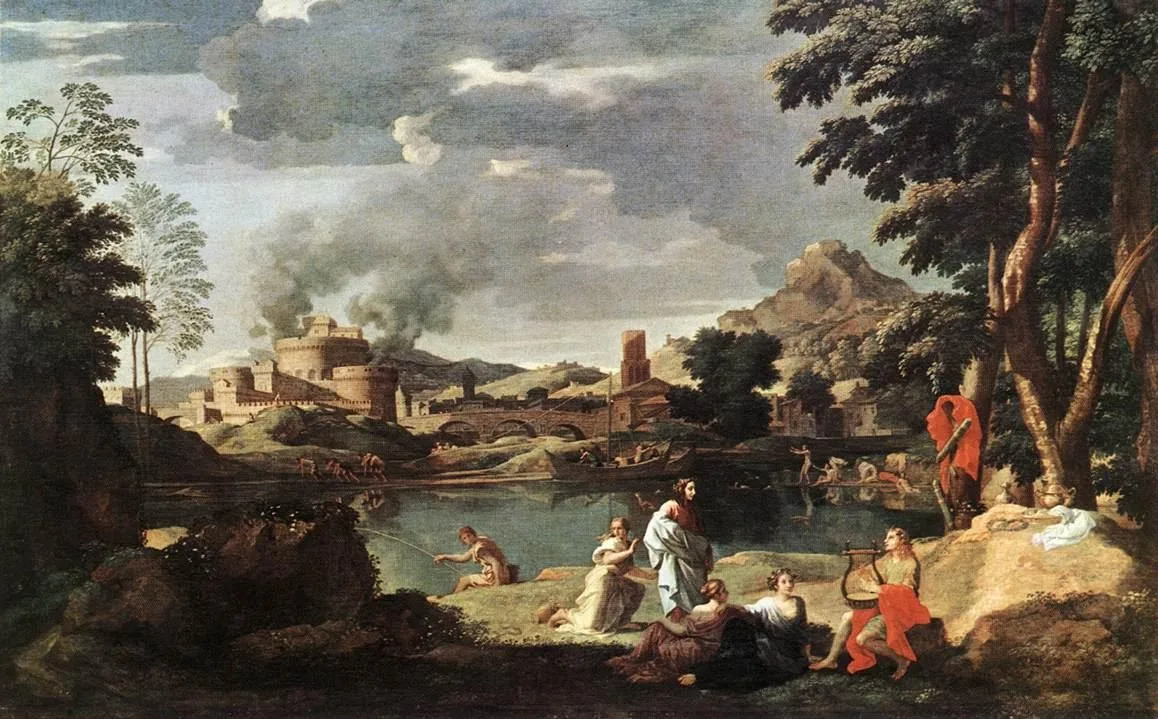
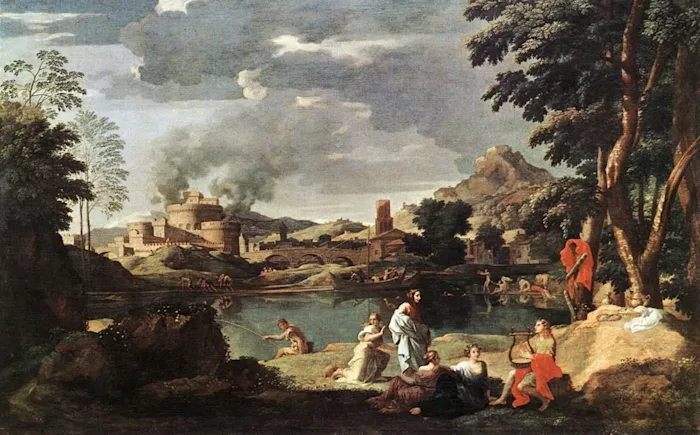
By exiling itself from the city, the Orphic exiles it. It carries the inhabitable city along with it. Against the polis, it sides with the chora, the hinterland, the places and worlds against the unique and crazed social world. Moreover, the Orphic makes itself into a place, making use of the new “interior space” which reflexive consciousness has now hollowed out in each being, and thus between beings. This is the meaning of Hölderlin’s famous “free use of the proper”, “the spirit shared among friends, the thoughts which come into being through conversations and letters”, and without which “we have no thoughts for ourselves.” “Psyche ist ausgedehnt” — “the psyche is extensive” — writes Freud in a posthumous note. It’s the gaze of the city that turns the Orphic into a “Puritan” obsessed with the salvation of his soul, one who “renounces the world”, because only the city believes there is no other world than its own — when in reality it is the city that has lost the cosmos. So an Orphic is rather “one who believes in the world, not even in the existence of the world but in the moving possibilities, and in the intensities for giving rise to new modes of existence still, closer to the animals and the rocks.” (Deleuze, What Is Philosophy?) There is a different nomos than that of the city, a more original nomos. As Laroche recalls in his famous study of 1949 (Histoire de la racine nem- en grec ancien), nemô, nemomai, in the time of Homer, is to distribute, to apportion, but above all to graze and to have animals graze on a piece of land that is still unappropriated. It is to form habits, and hence to inhabit. The original nomos, the one prior to the law and administration of the city, doesn’t only designate a place for grazing with all the things necessary for sheltering animals and people, it’s mainly a way of living that has a form but not an explicit one that would open it up to all the manipulations, a form that doesn’t overdetermine the existence of the living beings, human or non-human. As Monica Ferrando points out in Il regno errante, the nomos in question refers at the same time to the fact of feeding oneself, of singing, and of having customs. Significantly, as humanity urbanizes and places the polis between it and “nature” nemô ceases to mean inhabit, with oikeô taking over from it; thenceforth, nemô no longer means inhabit except for the shepherds, the rustics, the Barbarians, the wanderers — the nomads. In Herodotus, notes Laroche, “nemomai is said of any nation or people incognizant of the polies or astea, particularly barbarians, while oikeô is reserved for the urban agglomerations, especially in Greece. And this is why the group polin nemesthai signifies ‘to exploit, to draw profit from’, any idea of distribution, sharing, and pasturage having disappeared.” One sees, by the way and once again, how all the etymologies of Carl Schmitt are fallacious. If the law of the city-state had been inhabitable, if it had been a true dwelling, it would not have been necessary, as the form of social life was being spelled out in laws, to adjoin “e êthê” to nomos to make people think that the law still had some ethical substance, still had something to do with living.
On the bone tablets from the fifth century B.C. discovered at Olbia starting in 1976, one reads next to the mention “orphicoi”, “bios Thanatos bios” and “eirênê polemos alêtheia pseudos” — “life death life” and “peace war truth lie.” Again at Olbia, one finds inscriptions from the third century B.C., like a kind of hypnotic echo: “bios bios apollôn êlios êlios kosmos kosmos phôs phôs.” We know from other Orphic strips that the thirsty psyche of the deceased, entering into Hades, is told to shun the first spring it encounters to the left next to a white cypress — the spring of lêthê — and turn towards the cool spring of Mnemosyne. The Orphic path is notoriously an ascetic path, but of an asceticism that isn’t exactly that of an aesthetics of existence or a care of self where it would be a matter, according to a completely social metaphor, of governing oneself. One can call it “mystical” so long as one understands — the Dervini papyrus gives an arresting example of this — that there is no materialism of consequence that is not mystical, and vice versa, and that a saved humanity would perhaps be mystical through and through. In the process of constructing the city, of socializing existences, the Orphic path offered itself as a counter-movement. At the extreme point of socialization of society that we have reached, perhaps we ought to ponder this neglected possibility.
In his Veil of Isis, Pierre Hadot counterposes what he calls the “Orphic attitude” to the Promethean attitude of Western civilization. He sees it as the now-urgent alternative to a relation to physis based on the extortion of nature’s secrets, to the exploitation of nature as an inert resource. The Orphic would be a relationship that is attentive to the coming-to-presence of phenomena, a patient, intuitive, poetic relationship with the different reigns — “the study of nature as a spiritual exercise” — an opening to “cosmic ecstasy.” This sort of mellow alternative is the soft definition of the Orphic path — an Orphism for social democrats. Unfortunately, the Orphic relationship with Aletheia, with the plain of Aletheia, is not compatible with the social world of the Doxa. It is much more demanding. “Insofar as Aletheia is experienced as a value radically demarcated from the other dimensions of the real, inasmuch it is defined as Being in its opposition to the murky and ambiguous world of the Doxa, the ‘master of truth’ of the philosophical-religious sects is more conscious of the distance that separates him, he who knows, who sees and voices the Aletheia, from the others, the men who know nothing, the poor souls tossed about by the flux of things.” (Marcel Détienne, The Masters of Truth in Archaic Greece) This is far from being democratic. Paradoxically, there is nothing more Orphic than The Metaphysics of Tragedy by Lukács. The rumor that states that asceticism is basically “anti-life” is true. Asceticism is indeed against life insofar as life “is an anarchy of dark and light: nothing is ever completely fulfilled in life, nothing ever quite ends. […] Everything flows, everything merges into another thing, and the mixture is uncontrolled and impure; everything is destroyed, everything is dismantled, nothing ever flowers into real life. To live is to live through something to the end.” (Soul and Form) The city can tolerate this kind of relationship with life, but it can’t accept it. Whoever relates to the horizon of their own finitude, ceases to be governable. Nothing is negotiable for anyone who attaches themselves to meaning. The social power of suggestion doesn’t resist the full presence to self, to the world — the world of waking hours and that of dreams and of the deceased. Or to say it with Landauer: “The road we must take to enter into community with the world doesn’t lead toward the outside, but the inside. Whoever succeeded in fully understanding a flower would understand the world.” (La communauté par le retrait )
If history is a nightmare from which some are trying to awaken, civilization is an illness from which few, it seems, are trying to recover. Moreover, there is a fragility peculiar to the spiritual being that marks it out for extermination. The most sensitive forms of life are also the most delicate. Everywhere it seems that the crudest and most monstrous species are also the most invasive; that holds these days in nature as among human beings. This is to say that the central question of the present is metapolitical, or ethical, or “anthropological.” Returning to the Orphic possibility is the total opposite of the “natal turning back” to the Greeks. Now that the fatal circle of civilization is closing, it’s a matter rather of exploring an original but continuously defamed possibility. A new political constitution has no chance of overcoming a disaster that is anthropological in nature, and fundamentally pathological. Since there is no healing that isn’t singular — “For the one enduring it, sickness is really, from case to case, the occasion to test its truth” (Victor Von Weizsäcker) — or rather since there is no healing without a singular desire to heal, the ascetic path is not an aristocratic fantasy: it is a general necessity. Or else, one must advocate with a certain operaismo for mass aristocracy. “The path of salvation is that of effort; it’s the path of Melete, of the long askesis, of the exercise of memory.” (Marcel Détienne, The Masters of Truth in Archaic Greece) If philosophy still maintains some relationship with healing, this is because living with excessively mistaken ideas makes one fatally ill. The experience of the Orphic circles clearly belongs to the tradition of the defeated. It has managed to come down to us by who knows what subterranean channel, by its very repression, of which the archive has preserved the trace. At a century’s remove, one has to grant that Erich Unger was not all that wrong when he wrote in Politics and Metaphysics that “the subsistence of non-catastrophic human assemblages — a non-catastrophic politics of some kind — is possible only on a metaphysical base.” As since then we have still not seen “the emergence from elements and factors of present and past political experience of an ethically satisfactory organization of human coexistence.” We know that Unger saw no salvation without the constitution of a “universitas metapolitica” that would give the signal, through the affirmation of a truly spiritual intensity, for a secession from those crumbling metaphorical collectivities that societies and nations are. He imagined a great migration that would finish off the existing political entities, a subtraction of sane and saintly people from the democratic and civic ethos. In 1979, as the “crisis of social man” (Camatte) was running its course and a metaphysically failing insurrection was being crushed in Italy, Carchia suggests the Orphic path as a possible way out of the reign of fully developed biopolitics. There is a “life outside life.”2 There is the political without the polis.[3. “_Es ist hier wahrhaft, was es nie gegeben hat.” (Gianni Carchia, Zur physiognomie von Carlo Michelstaedter) — “Here what truly is, is what never has been.”)
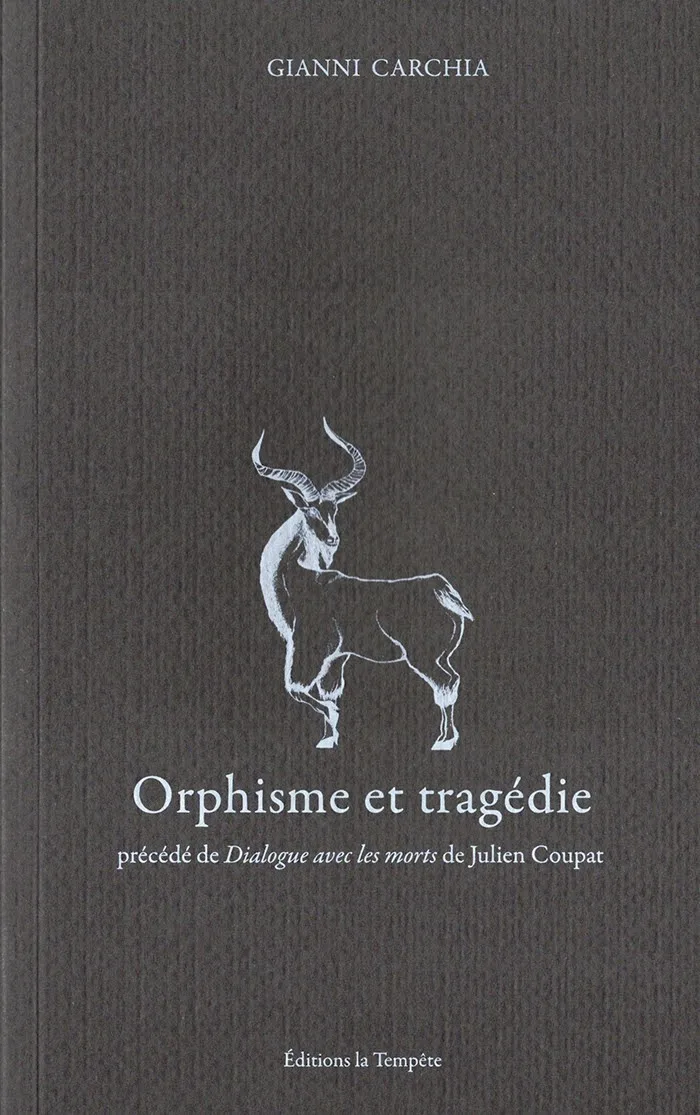
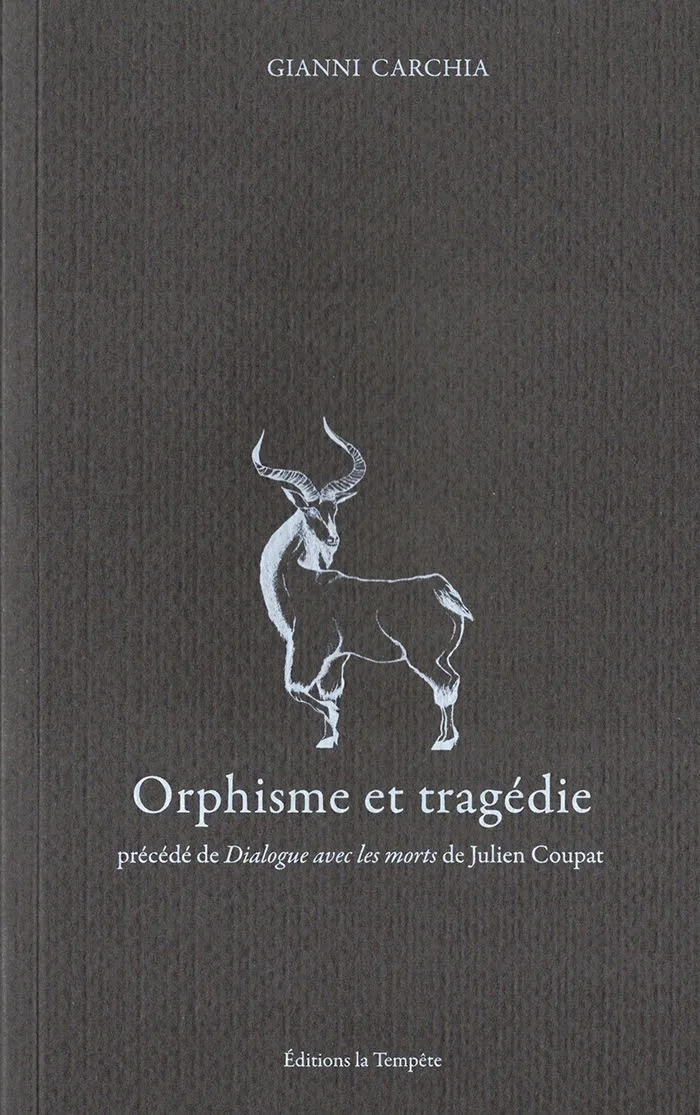
Paris, December 7, 2018
Translated by Robert Hurley
Notes
1. “While they were under tyrannical rulers, the Athenians were no better in war than any of their neighbors, yet once they got free, they were by far the best” (Herodotus, Histories, V, 78).↰
2. Marten Björk, Life Outside Life: The Politics of Immortality, 1914-1945, PhD dissertation.↰
3. The French formulation, “il y a du politique sans polis,” is difficult to render in English, since one would have to say, “there is something of the political without the polis,” yet here the political signals a dimension or substance distinct from "politics." —Trans.↰